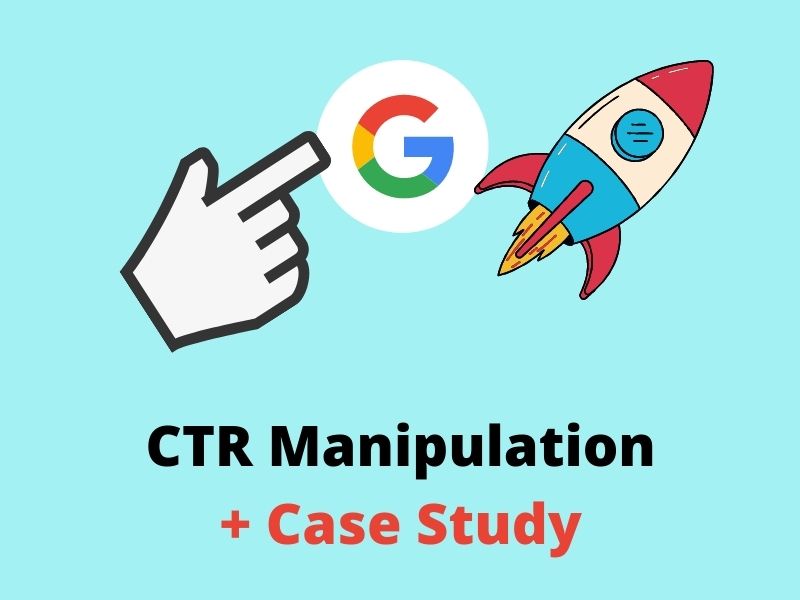LinkDaddy CTR Manipulation: Specialized Providers for Boosted Internet Web Traffic
Exploring the Connection Between CTR Adjustment Solutions and Customer Behavior
In the realm of electronic marketing, the influence of click-through price (CTR) manipulation services on individual habits remains a complicated and fascinating subject. As on the internet systems increasingly depend on CTR metrics to gauge the success of content, products, and services, comprehending how these controlled prices influence user interaction and decision-making procedures is extremely important. The interaction between CTR manipulation and individual actions questions regarding authenticity, credibility, and the moral ramifications of such methods. By studying the complex relationship in between CTR control solutions and customer behavior, interesting insights emerge that may reshape our understanding of digital advertising approaches and their results on customers.
Effect of CTR Manipulation on Behavior
Assessing the impact of Click-Through Rate (CTR) manipulation on customer habits reveals essential insights right into the characteristics of online interaction. CTR control involves artificially pumping up the number of clicks on a particular link or ad to trick users and internet search engine. This practice can result in a distorted understanding of a webpage's popularity or importance, ultimately impacting customer actions.

Furthermore, CTR control can alter the data utilized by formulas to personalize customer experiences. This can lead to individuals being served content that does not straighten with their preferences or passions, eventually bring about a decrease in user satisfaction and interaction. Understanding the impact of CTR control on customer habits is vital for maintaining transparency and count on on the internet communications.
User Involvement With Adjusted CTR
User engagement with controlled CTR information commonly leads to skewed perceptions of on the internet material popularity and significance. When individuals connect with content based on artificially inflated Click-Through Rates (CTR), they may believe that particular details, items, or solutions are more popular or trustworthy than they really are. This can cause customers making decisions based on misleading information, bring about possibly unfavorable outcomes.
Involvement metrics like likes, shares, comments, and time invested on a page are usually influenced by CTR control. Individuals might be more inclined to engage with web content that shows up to have higher involvement rates, further perpetuating the cycle of manipulated understandings. Consequently, material designers and marketers may focus on generating content that produces high CTR instead than focusing on producing truly important and appropriate material.

Mental Effects of CTR Control

Additionally, the mental effects of CTR manipulation can likewise materialize in altered decision-making procedures. Customers may be much more inclined to click material entirely based on its viewed appeal, instead of its actual worth or importance to their requirements. This behavioral shift can result in a surface engagement with online web content, where users might forget top quality but much less prominent offerings in support of those with synthetically boosted CTRs.
Essentially, the mental implications of CTR manipulation highlight the relevance of preserving openness and authenticity in visit this website on-line interactions to cultivate genuine individual engagement and depend on.
Ethical Factors To Consider in CTR Manipulation
CTR adjustment raises issues concerning tricking customers, distorting data analytics, and jeopardizing the reputation of online content. By artificially pumping up CTR, users may be misled into clicking on links or ads they would not have actually selected otherwise, leading to an insincere online experience.
An check these guys out additional ethical aspect to contemplate is the fairness of adjusting CTR to get an unfair benefit over competitors. Participating in such techniques not just breaks concepts of fair game but likewise threatens the trust that users put in on the internet systems. It is crucial for businesses and digital online marketers to promote honest requirements in their practices to guarantee openness, credibility, and long-term sustainability in the on the internet environment.
Implications for Digital Marketing
With the enhancing dependence on digital platforms for advertising and marketing purposes, the method of controling click-through rates (CTR) presents substantial ramifications for the effectiveness and stability of digital advertising and marketing methods. CTR control can bring about skewed data analytics, deceiving online marketers right into thinking that their campaigns are doing far better than they in fact are. This can lead to misallocation of resources, with firms purchasing underperforming techniques based upon falsified CTRs. In addition, when users recognize that CTRs have actually been adjusted, it can wear down rely on the brand, resulting in long-lasting negative repercussions for consumer commitment and brand online reputation.
In addition, the use of CTR control solutions can develop an unreasonable competitive landscape, where firms that take part in such techniques get a synthetic advantage over those that comply with ethical advertising and marketing standards. This can stifle innovation and creative thinking in electronic advertising and marketing, as success becomes even more regarding control tactics than supplying real value to consumers. Inevitably, the ramifications of CTR adjustment for digital marketing prolong beyond temporary gains, affecting the total sustainability and reputation of advertising efforts in the digital world.
Verdict
To conclude, the connection in between CTR control services and individual actions is complex and diverse. The influence of CTR adjustment on habits, individual involvement with adjusted CTR, mental effects, ethical factors to consider, and ramifications for digital advertising and marketing all play a duty fit this partnership. Comprehending these characteristics is vital for marketing professionals and scientists alike in order to navigate the moral effects and make best use of the efficiency of their electronic advertising and marketing strategies.